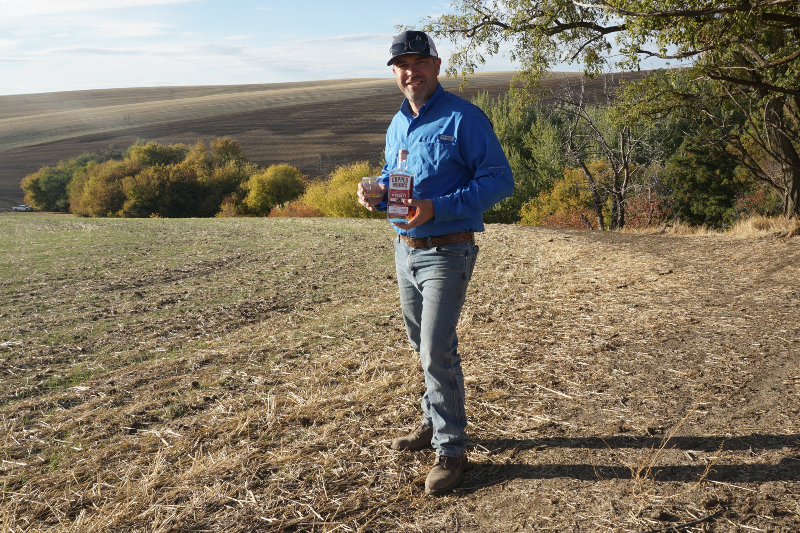
Whiskey comes in all shapes and forms. In Japan, it’s spelled ‘whisky,’ in Scotland, it’s Scotch, and in the Pacific Northwest, it’s now salmon-safe.
Seattle’s Copperworks Distilling Company’s Whiskey Release 039 is the nation’s first American single malt whiskey made with certified Salmon-Safe ingredients. The whiskey batch is made using a single variety of malted barley from a Walla Walla, Washington family farm that is Salmon-Safe certified. What this means is that the grower institutes a number of land management practices to protect the water quality and the wildlife habitat for native fish around its farm.
Not only is the distillery considerate of its surroundings, but they brew a pretty darn good whiskey as well. Since opening in 2013, Coppersmith has taken home several awards, including being deemed 2018’s “Distillery of the Year” by the American Distilling Institute. This all arises from the spirit maker’s considerate entrepreneurial roots.
Related Guides
“Business practices that support environmental protection and promote strong communities are a fundamental part of our business philosophy. We have always focused on partnering with small farmers and using and promoting locally grown malts,” Copperworks Distilling Co. co-founder and president Jason Parker said in a statement.
Founded by river protection organization Pacific Rivers, Salmon-Safe aims to motivate land use that protects water quality and wildlife habitats and reduces the impact of farming operations on the watershed. Salmon-Safe’s rigorous conservation requirements include enhancing and restoring natural surroundings, implementing biological and cultural controls for pests, phasing out harmful pesticides, and promoting soil health by preventing runoff from fields.
Salmon-safe also just so happens to align to Coppersmith’s core tenets in supporting environmental protection and promoting strong communities. The distillery is dedicated to minimizing water usage, energy consumption, and waste production throughout its operation. Copperworks’ copper stills, for example, are heated by energy produced from ‘biomass,’ (essentially clean waste wood) a sustainable, non-fossil fuel source, which doesn’t add new carbon to the atmosphere. And to minimize water usage in the distilling process, Copperworks installed a 500-gallon cooling tower on top of its Alaskan Way waterfront location in Seattle. The tower allows distillers to re-circulate and re-use the same 500 gallons of water to produce each batch of spirits in a continuous loop — dramatically reducing the amount of water required for distilling.
For Copperworks’ American Single Malt Whiskey Release 039, the company worked with H.T. Rea Farm in Walla Walla, Washington to grow the whiskey’s Genie malt. This Salmon-Safe certified farmland produces barley and wheat thanks to the work of Mainstem Malt, a company that recruits landowners to adopt the certification so that it can provide single varieties of Salmon-Safe grains.
“The Genie malt in this whiskey is really a place-based experiment,” Mainstem Malt founder Phil Neumann said in a statement. “Not only do we get to taste the ‘terroir’ of dry-farmed grain from Walla Walla, we know that this grain comes from a farm that intentionally protects the land and water downstream through its commitment to Salmon-Safe farming practices.”
Not only does Coppersmith support these farmers and raise awareness with its customers, they hope to be a partner and an example to the endless additional businesses that rely on clean, safe Pacific Northwest water.
“We’re not alone in taking action to protect water quality and wildlife habitat in tributaries across Puget Sound. There are many farms, vineyards, wineries, breweries, golf courses, and other projects that are Salmon-Safe certified and we hope that number continues to grow,” said Copperworks Distilling Co. co-owner and vice president, Jeff Kanof. “We’re hopeful that our Salmon-Safe certified whiskey will raise awareness in the distilling community that there is an opportunity to produce great whiskey while protecting and improving the environment.”
At just 2,103 bottles, Release 039 is highly limited. The distillery plans to continue brewing with this single variety grain to create further varieties for drinkers to explore how the malt’s flavor changes year over year.
750ml bottles of Copperworks Release 039 can be purchased online at copperworksdistilling.com or at its distillery, 1250 Alaskan Way, Seattle.
Read More: Walsh Whiskey’s Super-Limited Icewine Cask Finished Whiskey



